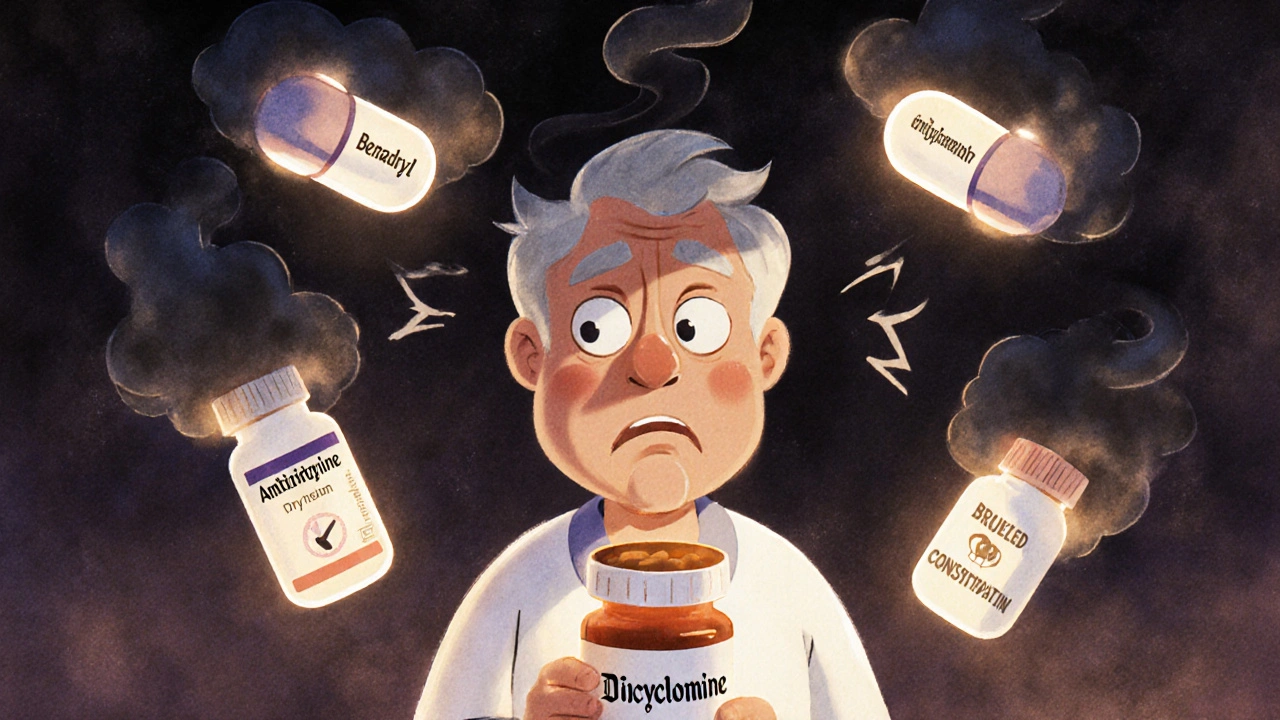Dicyclomine: What It Is, How It Works, and What You Need to Know
When your gut feels like it’s in knots, dicyclomine, a muscle-relaxing anticholinergic drug that reduces painful spasms in the intestines. Also known as Bentyl, it’s one of the few medications specifically designed to calm the involuntary contractions that cause cramping, bloating, and discomfort in people with irritable bowel syndrome. Unlike painkillers that just mask the ache, dicyclomine targets the root cause—overactive smooth muscles in your digestive tract. It works by blocking acetylcholine, a chemical that tells your gut to contract. Less signal, less cramping.
This drug doesn’t work for everyone, and it’s not a cure. But for many, it’s a game-changer. People who’ve tried fiber supplements, probiotics, or elimination diets often turn to dicyclomine when symptoms persist. It’s often paired with lifestyle changes, not replaced by them. And while it’s not a sedative, it can cause drowsiness, dry mouth, or blurred vision because it affects more than just your gut. That’s why it’s not usually the first choice for older adults—anticholinergic medications, a class of drugs that block nerve signals in the nervous system. Also known as cholinergic blockers, they include drugs like Kemadrin and Compazine, and carry a known link to cognitive decline with long-term use. If you’re over 65 or taking other anticholinergics, talk to your doctor before starting dicyclomine.
It’s also not for everyone with stomach issues. If you have glaucoma, urinary retention, or severe liver disease, dicyclomine can make things worse. And while it’s sometimes used off-label for menstrual cramps or bladder spasms, there’s limited evidence for those uses. Most of the real-world data comes from people managing IBS—especially the crampy, spasmodic type. You’ll typically take it 30 to 60 minutes before meals to prevent symptoms before they start. The key is consistency, not waiting until the pain hits.
What you won’t find in most doctor’s offices is how dicyclomine stacks up against newer options like peppermint oil capsules or low-dose antidepressants for IBS. But in the real world, many patients still rely on it because it’s cheap, available as a generic, and works fast. The trade-off? Side effects. Dry mouth is common. Constipation happens. Some people feel foggy or dizzy. That’s why it’s often tried for short periods first, then reassessed.
The posts below dive into how dicyclomine fits into the bigger picture of gut health, medication safety, and alternatives. You’ll find comparisons with other IBS treatments, warnings about combining it with caffeine or antihistamines, and real stories about what works—and what doesn’t. Whether you’re just starting out or have been on it for years, there’s something here that can help you use it smarter, safer, and with more confidence.

